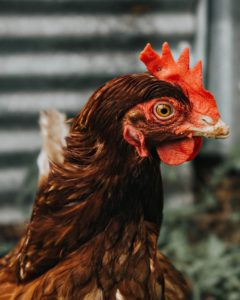by Jenny Rose | Mar 16, 2017 | Connection & Community, Emotional Intelligence, Shadows

Photo by Ian Espinosa on Unsplash
Projection is a defense mechanism used to displace the responsibility of one’s negative and unacknowledged feelings, behavior, beliefs and choices by attributing them to someone else.
The goal of projection is to create a distraction that helps avoid ownership and accountability. The victim becomes the focus, and is manipulated into taking responsibility for the abuser’s behavior, beliefs and feelings.
For example, an obviously angry parent confronts and accuses their child of hating them. The child, in fact, loves the parent, feels disliked by the parent, and walks away feeling ashamed and guilty for hating their parent, even though that’s not their feeling. For the moment, the parent has successfully displaced their own self-hatred onto the child.
Another example is a friend talking to another friend about her experience of a chaotic yet transformative life event that’s picked her up and set her down in a different place. The speaker is accused of being negative and making her friend feel stressed and upset, in spite of the speaker’s attempts to be clear about the exhilaration and joy of her experience. The speaker walks away with her friend’s displaced inability to deal with change and loss of control, her own joy forgotten.
Projection is a common defense mechanism, and most of us use it to one degree or another. It’s not necessarily a Big Evil. On the other hand, projection can be a subtle and cruel blame-shifting game of power-over, and some people who employ this tactic intend to win at any cost. Their victim and the world at large are blamed for everything that’s wrong or feels bad. The projector is an innocent victim of the machinations and manipulations of others, the general unfairness of the world, and bad luck.
People who use projection as a weapon can have a devastating effect in our lives, but I’ve been even more devastated by my own use of projection, and this is a skill the culture has actively and systematically taught me to perfect.
I’ve been brainwashed since I was a child to believe all people share my desire for peace, compassion, and cooperation. I’ve been led to believe all others share my empathy, my thirst to learn and grow and my priorities for healthy connection. I’ve been taught the Golden Rule, the application of which ensures being treated with love and kindness. We treat people the way we want to be treated, and voila!
Furthermore, as a female, it’s my responsibility to be a representative of all these values. If I fail to exemplify peace, empathy, loyalty and kindness towards others, I fail to be a good daughter, wife, lover, friend, mother and woman.
It’s also my job to be the keeper and carrier of feelings the people around me don’t want to deal with. It’s what I’m for.
No one ever suggested to me how dangerous it is to project my own value system onto another person, and I only just discovered this for myself recently. As it gradually dawned on me, I struggled for a time to find an alternative way to look at the people around me. If I don’t approach others with all my naïve projections, then what? I don’t want to assume everyone is destructive and dangerous, either!

Photo by rawpixel.com on Unsplash
Then it occurred to me our approach to strangers (or even those we think we know) needn’t be either/or, friend or foe. A stranger is a stranger. An unknown. It’s not necessary or useful to project anything onto a stranger. The Golden Rule still applies and I conduct myself authentically and respectfully and pay attention as I interact with an unknown person. I’m learning not to manufacture stories, make assumptions or project. I inquire, listen, watch and take responsibility for my own feelings and behavior.
Projection is a complex technique and can be very hard to see when it’s lurking under the bed. However, in this house we’re skilled at pulling all sorts of monsters out from under the bed (metaphorically, of course) and letting the cat sniff at them. Once identified, projection is perfectly manageable.
Projection, like gaslighting and mice, leaves tell-tale signs.
- Any conversation about a challenging issue (money, parenting, fidelity, keeping one’s word, the nature of the relationship, why you got hit) winds up being about why it’s all your fault.
- You’re accused of something (a feeling, lying, cheating, stealing, being demanding, interrupting) that’s not true.
- In spite of your best efforts, communication isn’t successful. You can’t get your point of view heard and you feel chronically disempowered.
- After an interaction, you feel ashamed and guilty.
- No matter what you do, you seem to be continually hurting someone you care about.
- You don’t experience reciprocity; the more loyalty, understanding, empathy, love, gratitude and forgiveness you extend, the more drained and alone you feel.
- You feel like a disappointment, a failure and a burden.
- You’re always bleeding; you had no idea what a terrible person you are.
- You feel manipulated, used, disliked, and angry, which increases your guilt and shame.
- You feel confused, baffled and bewildered. Every time you turn around you seem to get sucker punched, literally or figuratively.
- You don’t feel safe.
- Your trust is damaged.
- Your boundaries are chronically violated.
- Your priorities, feelings and values are disregarded, if not brutalized.
- Your needs are not met.

Photo by Volkan Olmez on Unsplash
Abusers and personality disordered people who employ projection invariably give themselves away, right in plain sight, because at some point they project onto others something so bizarre the victim and/or onlookers have an Aha! moment and recognize the manipulation. For example, someone with sexual boundary issues accuses someone else of an assault that never happened. A thief projects stealing onto someone with scrupulous integrity. A liar accuses an obviously honest person of lying. A rageholic accuses everyone else of being angry while they put their fist through a wall.
Another common projection is “You don’t care!” when in fact we care so much we feel terminally ill, and we still can’t make it work.
Shame and guilt have enormous isolating power. One of the best defenses against projection is to verify someone’s stated perception of you and your behavior. I had a boyfriend who accused me of “always interrupting.” I was crushed. It was a heated, angry accusation blowing up out of nowhere, and he’d never given me that feedback before. I’ve studied good communication techniques for a long time, and communication is something I care about doing well. Furthermore, I frequently had the experience that he interrupted me, but I tolerated it because I loved him.
My choice (after I stopped crying) was to ask other people in my life if they had this experience with me and get a reality check. I had a couple of close girlfriends whom I knew would tell me the truth. If it was true, I wanted to know so I could change that behavior.
They thought I was nuts. One of my best friends, who had years of experience of me in groups as well as one on one, said she appreciated the way I always held space for others to speak.
I didn’t cry anymore and I immediately dumped that projection. Not long after that the relationship also ended.
Another good defense against projection is to name the behavior and refuse the projection. There’s no need to fight, raise your voice, cry, argue, persuade, explain, justify or throw something. Those are all distractions from the fact that the abuser is employing a toxic tactic that’s about them, not you. Let them escalate — it’s their game. You’re don’t have to play.
“No. That’s not how I feel. That’s a projection.”
“No. That’s not what I did. That’s a projection.”
“No. That’s not what I said. That’s a projection.”
Stand your ground, look them in the eye and refuse to get distracted from their behavior, no matter how juicy the bait they dangle. Hang up, disconnect, block, delete, walk away, disengage. If you can’t get away from them, repeat a simple statement like the ones above as many times as you need to.
Projection can be abusive and toxic. It’s essential that we recognize it, both when we employ it and when others use it against us. Good boundaries go a long way to disabling projection, and so does the work of authenticity. We can’t control the behavior of others, but we can learn to recognize and excavate our own projections and take responsibility for our choices and feelings, which makes us far less vulnerable to this tactic.
All content on this site ©2017
Jennifer Rose
except where otherwise noted
by Jenny Rose | Mar 9, 2017 | A Flourishing Woman, Body, Food
This is a third post in a series in which I’ve questioned the relationship between American dietary standards and health and written about my own personal journey with diet. This week I’ll focus on some of the ideology embedded in diet and food production.
In my first post, I briefly mentioned vegan bullying. Because of the way we choose to eat, my partner and I spend some time in digital conversations about food. I’ve been amazed by the hostility and hatefulness directed towards people who choose to produce, harvest and/or eat meat.

Photo by Agence Producteurs Locaux Damien Kühn on Unsplash
All people need to eat in order to live. That’s a given. I believe most individuals want to be able to feed themselves and their families with high-quality, healthy food. Sadly, because we live in a capitalist and consumer culture, this basic need is hugely impacted by financial, political, social and geographical variables. Additionally, diet is inextricably entwined in the religious and spiritual framework of many people.
Just this short list of factors make the basic necessity of putting food in our mouths complicated. Obesity and other eating disorders, as well as food-related diseases and health issues (which may be to say all diseases and health issues) reflect that.
Add to that a small but vocal group of people who take it upon themselves to judge, criticize, bully, shame and threaten others about their diet, and we’ve got a mess.
Now, there are all kinds of stated reasons why some people think they have a right to mandate what and how we all should eat. Some folks claim to be animal rights activists. Some talk about guilt, as in “What do you do about your guilt about eating the flesh of a dead animal?” Others say cows are killing the planet.
The list goes on. You get the idea.
I’m not a science teacher and this blog is not about handing out an academic education, but the cows killing the planet thing belongs under the heading of alternative facts. It simply isn’t true, and a brief survey of science-based permaculture, climate change and basic biologic history demonstrates that. Properly managed, the presence of animals is essential to healing the planet. Believe it or don’t believe it, but for me this is nonsense and I’m not interested in debating it.
The animal rights activism excuse really gets under my skin. First of all, equating eating meat with hating animals is first grade level reasoning. The world is filled with hunters who deeply respect and love the land and the animals they hunt and harvest. They show that respect by protecting the health of wildlife and wild land, doing their best to get a clean and efficient kill shot, using all of the animal they kill and supporting sustainable hunting practices. Of course, there are plenty of the other kind out there, lots of idiot trophy hunters and poachers who need a rack or a pelt in order to feel powerful. I don’t deny it. What I do say is that hunters are like everyone else — some are respectful and see themselves as part of the system we inhabit, and others operate strictly from power-over and see themselves as masters of the universe.

Photo by Greg Ortega on Unsplash
This also holds true for food producers. A small family farm hand raising meat with love, affection, attention, rotational grazing on healthy land and a good natural diet is a beautiful place. These people love their animals and the land. They also slaughter, butcher and eat their animals. They participate in, understand and respect every part of the cycle, from breeding to table.
To equate something like that with the nightmare of some modern mass meat production is simply ridiculous. If you want to see cruelty to animals, all you have to do is whisper “profit” into the ear of a corporation. Big Oil, the cosmetic industry and the fashion industry are just a short list of entities who have done plenty to destroy animals and habitat, and most people don’t care.
Incidentally, I’ve spent much of my life involved with animal rescue. I’m proud to say my mother is one of the most talented people I’ve ever met or heard of with animals and she’s largely given her life to making the world a better place for them, particularly horses and dogs, but by no means exclusively. This has all been volunteer work, done out of respect and love for the life in the world that can’t fight or speak for itself. She doesn’t see herself as better than. She sees herself as part of. The animals honor her with their presence and companionship, not the other way around.
So, yes, I eat meat with great enjoyment, AND yes, I love animals. I’m not limited by an inability to dwell in the sacred and powerful duality of life and death.
Bigger than all of this, however, is the guilt aspect, the real heart of this post. A vegan asks, “What do you do with your guilt about eating dead animals?”
For me, this question is much bigger than an issue of diet. The question reflects just how far we’ve strayed from wisdom, health and sanity in this culture.
When did we become amputated from our rightful place in the complex, miraculous web of life around us? What are the roots of the tragic and fatal arrogance that makes us believe we’re in control of life and death in our complex system? At what point did we become estranged from aging, loss, death and decay, which is to say HALF the full, powerful cycle of life?
Life is death. Death is life. Neither has meaning without the other. Both are essential. All life feeds on death. When we walk in the forest we’re walking on death. The whole natural world is based on prey and predator, eaten and eater. What does a tree do about its guilt as it feeds off and roots in the bodies of its companions? What does an eagle do with its guilt when it takes a salmon? What does a lion do with its guilt when it runs down a gazelle?
The guilt in that question is a projection. I don’t have any guilt about eating meat, and I think it’s tragic that anyone has guilt about the necessity to eat. If you pull up a carrot and eat it, you kill it. Every bite of food we put in our mouths is possible because of death. We exist as part of a vital, dynamic and inestimably beautiful and precious system that ebbs and flows, dances, fluctuates, cycles and revolves around life and death. We can choose to act as a unique and valuable part of that system by using only what we need, nurturing and learning from the life around us, and joyfully participating in all the ongoing life-death-life-death cycles around and within us, or we can choose to deny, destroy, and/or desperately try to control life and death, which is a completely fruitless (no pun intended) endeavor. We, thank God, are not that powerful.
The seasons will cycle. New life will be born in the midst of death. The green world will reseed itself, sprout, grow, bloom, fruit and die. The microscopic world and fungi will continue to break death into a rich placenta that sustains the next generation of life. Life is an incredible privilege. Death is part of that privilege. Nurturing life and allowing to die what must is part of what it means to me to be a woman.
I don’t know what’s going to happen to my country, the climate, or the planet. I’m afraid for us all, and the world we call home. What I do count on is the mighty cycle of life and death. All things change. All things move and flow. Nothing ever stays the same. All our fear and desperation, our greed and selfishness can’t change life and death.

Photo by Andrea Tummons on Unsplash
What I can do is figure out how to best support my body with food. Then, I can make choices about how I procure the food I eat — to some degree. I don’t have the means right now to grow my own meat. However, I can and do buy eggs from a neighbor farmer, driving very carefully into the yard so as not to run over her free-range chickens and ducks. I can take the time to relish and appreciate opening a many-times recycled egg carton and looking at a whole variety of shaped, sized and colored eggs, mixed with occasional bits of straw and feather fluff. I can save money so I can buy a half an animal in the fall from a local small farmer to put in the freezer. I can buy fresh local yogurt, butter, cream and cheese from the farmer’s market.
It seems to me our energy should be going into making sure everyone has adequate food and clean water, and that we treat our food sources, whether animal or plant, and the system within which they grow (you know, the planet? Earth?) with love, intelligence and respect. We all can do something about food. Those among us who are doing the hard and unprofitable (financially) work of growing food on small farms may well hold the keys to our future survival. What they know about permaculture, holistic environments, food forests, sustainability, breeding, planting, harvesting and slaughtering is truly the wisdom of life.
Which is to say the wisdom of death.
Which is to say, again, the wisdom of life.
Bon appetit.
See the fourth post in this series here. Check my Resources page for links to information about diet and nutrition.
All content on this site ©2017
Jennifer Rose
except where otherwise noted
by Jenny Rose | Oct 27, 2016 | Connection & Community, Emotional Intelligence
When I began this blog, I made a deal with myself to stop pleasing people. I hope you don’t think this decision led to happily ever after. Aside from a couple of notable exceptions, I’m not making friends and influencing people among my nearest and dearest. Still, I’m determined to grow and heal, whether it pleases others or not.
Lately, though, I’m getting bored with myself. I’m bored with my one-dimensional, civilized blogging. I’m bored with living up to the most mealy-mouthed, simpering word in the English language: Nice. I’m tired of hiding my rage, my passion and myself. I wonder if this blog lacks vitality. It’s too fucking nice. It’s naïve, in the way women who try too hard are naïve. Women like me.
I can do much more than nice.
So, here’s this week’s post.
Reciprocity is a fine, fancy-sounding concept, but it’s not easy to find in the real world. The real world is all about Fuck You.
In the real world, men own women; parents own children; addictions, technology and the media own all of us and the biggest narcissists and bullies run the world. The real world runs on the power to control other people. This is because most people can’t control themselves, so naturally they take it out on everyone else. If we’re standing too close, it doesn’t matter who we are. Don’t kid yourself. Child, parent, lover, spouse, oldest and most loyal friend — it all counts for nothing and reciprocity is NOT always in the equation.

Photo by Hermes Rivera on Unsplash
If you don’t believe this, just look at the way we treat our home, poor old weary Mother Earth. Everything we need is here. Everything is provided. What do we do? Take a crap on her and poison her and then complain because she doesn’t give us enough.
Gratitude? Dream on. Thankfulness? You must be kidding.
Reciprocity, connection, boundaries — sure, sure. But in the real world, if we rise from our sweet-smelling bed every day, brush our teeth with milk and honey, say a cheerful good morning and work as hard as we can at loving and supporting others with the hope we’ll get it back, we’re not very bright. You know what we’ll get back at the end of the day from most people?
Fuck You, that’s what.
Because we’re human. We’re not inexhaustible. We want to be loved, too. And eventually we’ll piss someone off. We’ll say the wrong thing, or we’ll be wearing the wrong color shirt, or (most unforgiveable of all) we’ll forget for a moment that we are not the priority. That’s when it happens.

Photo by Peter Forster on Unsplash
An explosion.
Unforgettable words.
A scene.
A thrown dish.
A fat lip.
Fuck You.
And it’ll be our fault, because they haven’t had their coffee yet, or they’re hung over, or they hate the job they’re about to go to, or they didn’t get laid last night, or we’re failing our job to make their world a better place. We disappoint, we have a boundary, we say no, we dare to ask for something, we fail to comply. We make them crazy and we make them treat us like a piece of shit. As far as they’re concerned, we can take our love and shove it up our ass.
And if we’re stupid enough to persist in trying to understand, trying to placate or sympathize with a bad mood or a hard experience, trying to alleviate their pain, then we really will deserve what we get, which will be another
Fuck You.
AND if we think our willingness to forgive and repair will be reciprocated by theirs, if we think taking responsibility for whatever we did wrong (even though we’re clueless about what it was) will cause them to do the same, if we enable and minimize and tell ourselves they didn’t (couldn’t) mean what they said, then we deserve every name, every accusation, every curse and every blow we take, because we’re stupid, we’re pathetic, we’re in denial and people like that get destroyed.
What is it about “fuck you” we’re failing to understand?
But don’t listen to me, sisters. Go ahead, spread that love around. If you keep demonstrating reciprocity and everything else you want, they’ll get it. They’ll love and value themselves the way you do. They’ll love and value you and your relationship. You’ll be able to make peace, keep it glued together, avoid further catastrophe if you try hard enough.
Sure you will. Good fucking luck with that.

Photo by Aimee Vogelsang on Unsplash
Women like me are in a very small cage made out of niceness. We’re constitutionally unable to do anything but be nice and try harder. We’ve been VERY well trained. We won’t make a scene. We’ll be an adult. We’ll forgive anything. We’ll never take our pain out on someone else, because we don’t want to make someone else feel the anguish we feel. We conspire to prioritize the needs of others. We don’t talk about our own despair and isolation. We don’t blame anyone outside ourselves for our difficulties, we just soldier on as well as we can, feeling guilty about our stress and failure and meekly accepting blame for everyone else’s shit and if, one day, we are hurt or frustrated beyond bearing and we DO explode, well, then there’s outrage and injury! Then there are trembling lips and tears! It’s for everyone else to put a needle in their arm, or powder up their nose, or soak their lives (and ours) in alcohol. It’s everyone else’s right to melt down, lose control, self-destruct, say hateful things and generally behave like 3-year-olds. Women like me are for blaming, forgiving, cleaning up the mess and taking responsibility. We are NOT recipients of forgiveness.
Reciprocity, my ass.
Yeah, reciprocity is great, if you can get it. So’s a good fuck, a great job, a loyal friend, a new Subaru and a vacation in the Bahamas. In the meantime, wake up and live in the real world. Take your finger out, pull up your socks and move on. Live or don’t live. Love or don’t love. Look for reciprocity. It’s out there. Some people are adult enough to participate in it. Never let it go if you find it. But prepare for
Fuck You.
(This is the third in a series of 4 on reciprocity. Parts 1, 2, and 4 are here.)
All content on this site ©2016
Jennifer Rose
except where otherwise noted
by Jenny Rose | Aug 25, 2016 | Power
Last month I posted about our power and ability to say both yes and no to others. This morning I’m thinking about another level of yes and no; that is the yes and no we say to life. At this level, the term ‘consent’ is useful. Consent means to “give permission for something to happen,” according to a 2-second search on Google.
Consent is a huge and complex topic and there’s a great deal of discussion about different aspects of it. For the purposes of this post, I’m using consent in the widest sense; the way in which we approach life.
Several interactions this week have made me think about the mysterious difference between people who consent to learn and grow and those who don’t. When I think about my observations, and people I’ve known, it’s clear to me the difference between these two kinds of people has nothing to do with age, sex, money, education, employment, intellect or family. It has nothing to do with the color of our skin or the god(s) we worship, or where on the planet we live, or what kind of horrors we might have endured.
I’m acquainted with a writer who sent me a piece in praise of stubbornness, a quality she admires (as do I) in herself and others because to her it means a determination to survive and do well, regardless of limitations, real and perceived. (Thank you, A!) We might mean the same thing by consent and stubbornness, or close to it. I see the ability to consent to learning and growth, over and over, no matter how many times we’re knocked down and cut off, as a kind of stubbornness — a refusal to give up, to close down, to conform to something that doesn’t work for us.
Without even trying I can identify seven people in my life, past and present, who don’t consent to the experience of life, the flow, the dance, the mystery and uncertainty, the synchronicity and the billions of invitations that arise for exploration, connection, understanding, growing and being.

Photo by Alex Iby on Unsplash
These folks are easy to spot. They resist. They argue with what is. They deny, distract, fall into various addictions. They don’t communicate effectively. They care about winning, being right and power-over. They have rigid stories and expectations. Everything that happens to them is a personal insult or a crisis. They’re victims. A good, deep question is a grave threat. To my eyes, they look miserably unhappy. They repeat the same patterns, over and over, dying a little more with each fruitless repetition. They do not consent. They refuse.

Photo by Cristian Newman on Unsplash
Every single one of the seven people I’m thinking of has had opportunities to learn, to grow, to change, to make different choices. They all had people in their lives who loved them and had information, tools and skills that might have enriched them. They all had people in their lives who valued them and wanted their contribution. They each had at least one person in their life who would have done anything to support them in learning and growing, and that person was me.
Most of those relationships are behind me now, because I have this unforgiveable quality of consent. My life now is based on the why, the what if, the whose rule is that, the help me understand. My life is about teach me, show me, share with me and what do you think? My life is about doing more of what works and letting the rest go. People who refuse and people who consent invariably have friction, because their needs are opposite. There’s just nowhere meaningful to go.
People who consent are not perfect or perfectly happy people. On the contrary, their lives have been filled with mess and miscalculations, abuse, addictions and other painful experiences, but they’ve learned from everything and everyone. People who consent don’t look at their lives with bitterness or frame things as mistakes. They see teachers, opportunities and fascinating things learned and yet to learn. People who consent are endlessly curious. They think about what they don’t know and question what they think they do know. They seek the hidden thing. They’re more likely to ask questions than proselytize or lay down the law. They’re not interested in power games or being right or winning. They seek to understand, to explore, to exercise choice, to manage their own power. They can laugh at themselves. They can and do say no, but they say it to protect their integrity and needs, not to shut out or control life.
People who consent choose happiness. That’s the most important one for me. I’m still reaching for that. I’ve always been a person who consents, but I’ve also chosen to stay limited in many important ways. As I’ve learned to discern between refusal and consent, I see that living life from a state of consent results in joy. Again, it’s got nothing to do with age, beauty, money, status or any of the things that the culture says we’re defined by. Joy, at the end of the day, is a simple thing, arising out of being at peace with this wild ride we call life. Joy is consenting to surrender, consenting to feel and experience, consenting to feeling fear and doing it anyway, consenting to give up trying to control the things we can’t control. Joy is composed of tears, blood, loss and disappointment, pain and growth. We already have it. It’s here, sitting on your shoulder as you read this and mine as I write.
All we have to do is consent.

Photo by Evan Kirby on Unsplash
All content on this site ©2016
Jennifer Rose
except where otherwise noted










